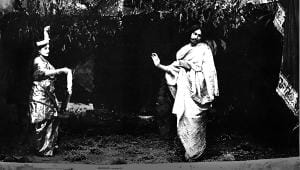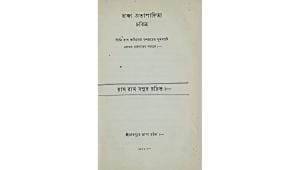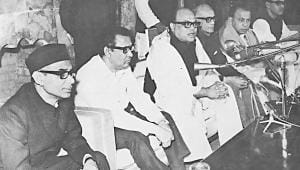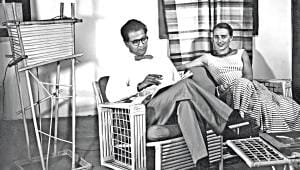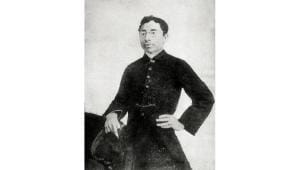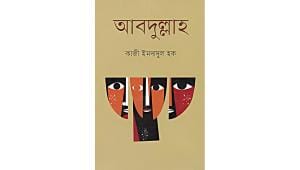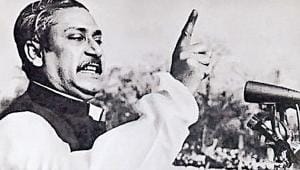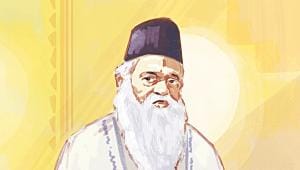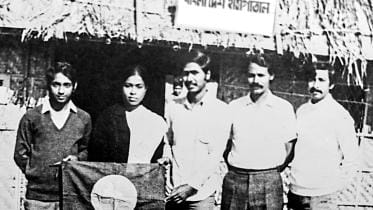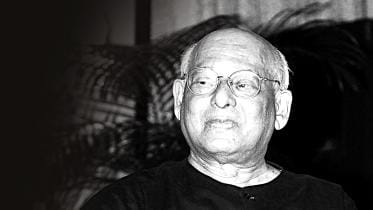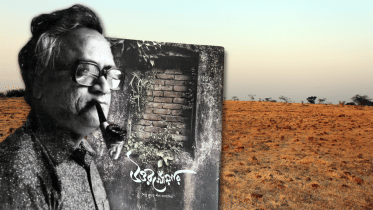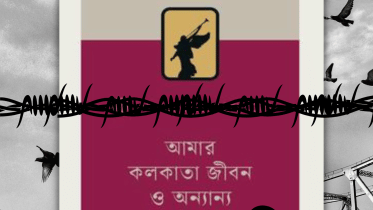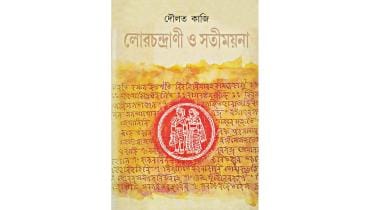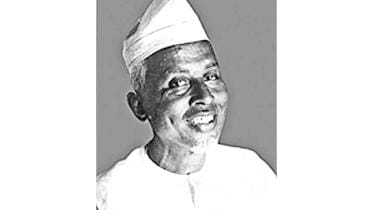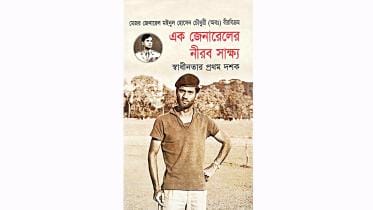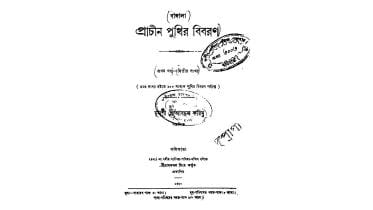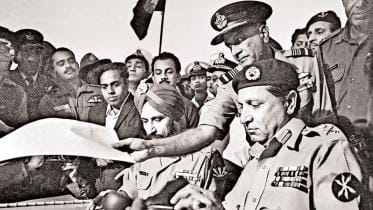Muktadhara: How Tagore Exposed the Tyranny of Nationalism
Rabindranath Tagore, whose genius touched nearly every branch of the arts and literature, left an indelible imprint on the world of drama—not merely as a playwright, but as an actor, director, and visionary of the stage.
11 May 2025, 18:00 PM
Raja Pratapaditya Charitra and the Birth of Bengali History Writing
The writing of history in the Bengali language by a Bengali began around 225 years ago with the publication of Raja Pratapaditya Charitra in 1801.
27 April 2025, 18:00 PM
Blood on the Barred Walls: The 1975 Jail Killing Revisited
In 1975, Bangladesh’s political landscape was irrevocably altered by the brutal assassination of Bangabandhu Sheikh Mujibur Rahman and almost his entire family (except for his two daughters, who were abroad) at their Dhanmondi 32 residence.
2 November 2024, 18:00 PM
From Controversy to Classic: Lal Shalu After 75 Years
Syed Waliullah’s (1922-1971) debut novel Lal Shalu drew significant attention upon its release but faced mixed reviews, including outright rejection. Since then, it has been translated into multiple languages, adapted for the stage, and made into a film. Today, it is regarded as the first major modern novel by a Bengali Muslim writer.
13 October 2024, 18:00 PM
Abdullah: The novel that pioneered a new era in Bengali literature
Kazi Imdadul Huq’s novel Abdullah, written nearly a century ago, is regarded as one of the first modern novels by a Bengali Muslim writer. Initially known for his poetry and children’s literature, Huq transitioned into a notable prose writer, offering profound insights into history, culture, and society. Abdullah was his only novel, published posthumously, and it has since become a milestone in Bengali literature, earning enduring acclaim from readers.
15 September 2024, 18:00 PM
A forgotten chapter in the intellectual movement of Bengali Muslims
Anwarul Quadir (1887-1948) was a key literary figure whose work significantly influenced the intellectual movement of Bengali Muslims in late colonial Bengal.
28 July 2024, 18:00 PM
Administrative dynamics in 1971’s War of Liberation
The War of Liberation in 1971 commenced late on the night of March 25th, as the Pakistani army initiated a genocidal campaign from all its cantonments, aiming to seize control of cities amidst the growing resistance movement.
25 March 2024, 18:00 PM
Dr Shahidullah’s thoughts on India and Pakistan’s language problem
Even before the partition of India, the question of language was an issue of debate, which eventually turned into an acute dilemma for both Pakistan and India. Against this backdrop, Dr Muhammad Shahidullah actively delved into the discussion of language, a key component of state formation and mechanism. His intervention in this subject, to this day, remains remarkable.
20 February 2024, 18:00 PM
The Heroic Role of the BMA, UK in 1971
In 1971, in England, a small group of Bengali doctors from then East Pakistan were immersed in their studies. Amidst the pursuit of their academic dreams, they found themselves attuned to the dynamic political landscape unfolding in East Pakistan.
15 December 2023, 18:00 PM
A philanthropic visionary and secular icon
Ranada Prasad Shaha, a true trailblazer in public health for Bangladesh, dedicated himself to philanthropy from the inception of his economic success.
17 November 2023, 03:00 AM
'Guha was as much an intellectual and thinker as he was a historian'
Ranajit Guha ( May 23, 1923 - April 28, 1923) was an influential Indian historian and scholar renowned for his groundbreaking contributions to the field of Subaltern Studies.
21 May 2023, 18:00 PM
Akhteruzzaman Elias: There is always an other to be purged
Shill edited the present volume as a rich collection of memories and evaluations of Akhteruzzaman Elias by his friends and relatives, some renowned literary figures of the Bangla language, as well as some occasional thoughts by Elias himself.
27 April 2023, 10:22 AM
Badruddin Umar: The life and works of a revolutionary
Badruddin Umarer Jibon o Kaj is an excellent collection of essays, articles and recollections about Umar written by many renowned national and international scholars.
5 April 2023, 19:08 PM
A refugee's tale in Calcutta
Unlike many of the war refugees from Bangladesh in Calcutta, he felt no urge to be involved in the war. He had fled the country to save his life, not to participate in the fight.
23 March 2023, 03:56 AM
Abdul Karim Sahitya Bisharad and Bengali Punthi Sahitya
Abdul Karim posited that it was the Muslims who laid the foundation of the secular and romantic genre in Bengali literature.
20 February 2023, 18:00 PM
Mahboobul Alam: An early historian of the 1971 war
Following the Liberation War of Bangladesh, the savant Mahboobul Alam (1898-1981) took up the task of writing a comprehensive history of 1971.
15 December 2022, 18:00 PM
What’s extraordinary about the ordinary?
In Pathak’s book we see instances of how the distinctive ordinary tendencies of everyday life are dipping and are capitalised under different industrial markets.
29 May 2022, 13:33 PM
Revisiting 1971 sagas through the lens of a silent witness
Major General Moinul Hossain Choudhury (Retired), Bir Bikram (1943-2010), was one of the twelve majors of the then-East Bengal Regiment
25 March 2022, 18:00 PM
Nationalist forgettings
In 1950, just a little more than two years into the partition of the South Asian subcontinent, the octogenarian Abdul Karim Sahityavisharad (1871-1953) delivered a lecture in Chittagong, on the language and heritage of the Bangla language in the context of newly founded Pakistan.
20 February 2022, 18:00 PM
‘I regret that Pakistan has still not formally apologised’
In conversation with Ayesha Jalal, Mary Richardson Professor of History and Director of Center for South Asian and Indian Ocean Studies at Tufts University, USA
15 December 2021, 18:00 PM

